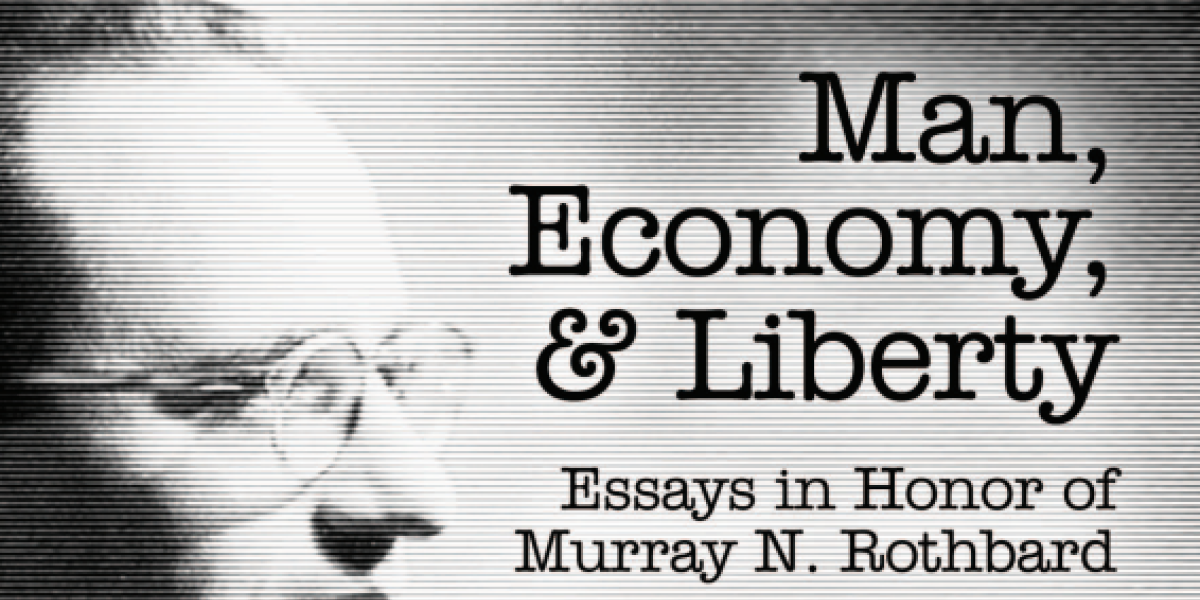I watch a lot of nature documentaries. I’m not very choosy about the animals covered, whether whales, moles, lions, ants, chameleons, blowfish, or mosquitoes. I’m even fascinated by footage of bacteria under a microscope.
I’m usually immersed as I sit in front of my large-screen television, so long as I learn something about the intricacies of the species filmed in vibrant colors. What do they eat and how do they avoid being eaten? What are their life expectancies, mating routines, and group dynamics? I’m amazed that blue whales and monarch butterflies can detect the Earth’s weak geomagnetic field and navigate intercontinental distances.
My selected nature shows usually follow the classic movie format, divided into three acts:
Act 1: the setup for a developing conflict between opposing forces (good versus evil),
Act 2: the build towards a crisis with the resolution pending, and
Act 3: the payoff, with the conflict resolved, often with an unexpected twist.
Any conflict exposed in the film must, generally, be easily understood. Movie plots don’t usually involve obscure philosophical dilemmas, because they can dampen ticket sales.
Nature documentaries lend themselves easily to this classic movie format. The opposing forces are obvious: prey versus predator. But they usually include elements not required in mainstream movies, namely, embedded Darwinian lessons on the coevolution of the traits of predators and prey (often leaving prey with only a slight advantage in, say, chases).
Here, I play through the three acts of nature documentaries by focusing on the usual narrative for elk ruts, which run from late August through October. I do this because the classic Darwinian conclusion drawn from the ruts must often be wrong: The best genes are not always passed from bull elk (and other species) through mating battles.
I love elk, but I confess that I use elk mating to develop a larger point: that rational decision making happens in a setting—mating battles—Darwinians might not expect. If elk have evolved even limited rational capacity, contrary to what many Darwinians presume, why not expect lower-order species, such as voles and even ants, to exhibit limited rationality? If my evolutionary perspective is accepted, Darwinian theory needs a revision to accommodate economic thinking. Rational decision making, dictated by scarcity constraints, can (at least marginally) divert species from their Darwinian evolutionary paths.
Darwin and Elk Mating
Filmmakers will typically begin their elk mating narratives in Act 1 by showing a herd (or gang) of elks grazing in a meadow just before the rutting season.
The mature bulls are initially filmed sparring in muted clashes of antlers. Their clashes become progressively more serious as the rut approaches. When the cows come into heat, the competition between bulls becomes deadly serious, winner-take-all contests, meaning the bull that defeats all challengers will have exclusive mating rights to a harem of, typically, 15–20 cows (with the harem size likely having evolved in response to the constraints bulls face: they must corral and keep their cows from straying with non-dominant bulls. This still happens, despite past evolutionary forces.
Facing serial challenges, the dominant bull has little time to rest and graze but many opportunities to be injured, meaning he will gradually weaken and lose his fighting advantage, no matter how many points his antler rack has.
Darwin and the Selfish Gene
Why do the bull elk (and males of other species) aggressively seek mating battles? Darwinian theory has a ready answer, laid out in Act 2: They have no choice, their elevated testosterone levels direct them to fulfill their Darwinian destiny, which is to propagate their genes.
In the mid-1970s, evolutionary biologist Richard Dawkins gave a scientifically more comforting explanation for males’ mating strategies by adding some predictive power to Darwinian theory. Dawkins proffered that contemporary males and females of species—including humans—are driven (largely, if not exclusively) by their genes to pursue their genes’ (as distinct from their own) self-interests for survival and propagation.[1]
By having such an embedded mating bias, males can economize on their scarce energy and neuronal resources by minimizing attention given to others, except when the aid helps their own genes’ propagation.
Over eons, today’s dominant elk bulls’ ancestors, driven by their selfish genes, were likely more successful in spreading their genes, and in strengthening selfish genes’ control, than in spreading other genes that were less narrowly directed.
Darwinian Tough Love
Dominant elk bulls are portrayed as being privileged, but they have tough and short mating tenures. Their dominance comes with benefits—but also at considerable costs!
To develop a sense of conflict, documentarians often show in Act 2 the dominant bull handily winning serial challenges, but with defeat looming. They generally portray mating battles as heroic struggles that validate a Darwinian tenet: The fittest elk (as determined in battles by strength, stamina, and dedication) will prevail.
The reign of the dominant bull will always come to an end in real life, and in documentaries. Why? The usual explanation is that some younger bull with greater strength and stamina—and superior genes—will eventually appear on the battlefield, sealing the dominant bull’s downfall.
The producers wrap up their narratives with a Darwinian axiom, “The defeated once-dominant elk has played through his evolutionary role. The new dominant bull’s superior genes will now pulse through future elk generations.”
Human Rationality
For theory purposes, economists assume that people have a rational capacity. This is to say that people have an ability to identify available choice options, assess their options’ relative values, and choose their highest-valued options with reasonable consistency. In short, they can make real choices, within bounds, that improve their individual and collective welfares. People’s rationality is made necessary—and necessarily constrained—by the pervasive resource scarcity that is at economics’ core.
Admittedly, as psychologists and behavioral economists (or economists who use psychology’s methodology) have documented, people have various cognitive limitations. People are prey to decision biases, irrationalities, and failures and make decision mistakes—many of which are calculated, planned, and expected. Mistakes are also rational—because of the resource scarcity that makes economists’ rationality premise necessary. This premise is also descriptive of decision making so long as these cognitive and other scarcity limitations are duly noted.
This means that economists should accept many behaviorists’ documented decision biases and irrationalities as merely the costs of making decisions that can’t be perfect, because of scarce decision-making resources (mainly neurons and energy). Moreover, such decision costs can have rational foundations.
The salience bias, for example, in decisions can free up scarce neurons to make other decisions more rational. Besides, why would thinking consumers spend the time and energy to consider carefully the ever-present information flows in markets? That would be not only irrational but totally nuts.
If we apply an economist’s methods to analyzing elk behavior, elk bulls’ testosterone levels can seriously affect their behaviors, but do not determine them, at least not completely. Changes in external forces, such as the severity of winter or the arrival of the rut, can affect decisions. But in economics, such changes operate by affecting the relative costs of pursuing different options.
For Darwinians, there’s no room for mistaken decisions and behaviors, only ones that do not advance species’ fitness and propagation—with no implied judgment. For them, mistaken doesn’t connote, say, a miscalculation of costs and benefits (or at least not calculations made at a conscious/reasoned level). For economists, many so-called mistaken decisions can be as rationally calculated, and welfare improving, as are so-called right decisions. This is partially because both mistaken and right decisions can be made with, if nothing else, decision heuristics imperfectly devised. But this process is still rational because it economizes on decision costs for given welfare gains.
Despite their findings of people’s decision deficiencies, behaviorists seem perfectly willing to propose corrective decision-making routines for all others, seemingly not recognizing their own potential for decision errors (and contradictory musings). They seem to see themselves as standing apart from others in that they are confident that their findings (as they interpret them) can devise, without error, corrective nudges that guide all others toward unfailing welfare improvements, as the subjects (not behaviorists) judge improvements.[2]
Non-Human Rationality
Why not assume elk (or moose, voles, or butterflies) have some level of rational capacity, although more limited than a human’s rational capacity? After all, elk’s far smaller brains surely make them more restricted in conceiving of alternative courses of action than humans. Elk are also surely less capable of refining their choice options and precisely assessing their relative merits. But such limitations don’t mean elk lack any rational capacity, enough at least to make narrow welfare-improving decisions, such as where to graze and when to fight and then to withdraw from mating battles. Would elk even want the rational capacity of humans, given their physical limitations that restrict their acting on more refined choice options?
Would Darwinian evolution allow elk, or any other species, to have a rationality level beyond what they can use, or use cost effectively? I doubt it, given the implied waste of scarce decision-making resources (which would limit the species’ survival chances).
I once presumed that humans were the only rational species, because of their large brains. I also wasn’t then interested in elk mating.
“A living thing must only be able to identify (some) alternative courses of action and then make choices based on their comparative values (which need not be fully refined), with the ability varying across species.”
Other species (extending from elk to ants) were simply not blessed with the necessary brainpower to handle rational thinking, I thought. I also didn’t then see an analytical benefit from assuming non-human species are rational. I now see the prospects, partially because I’ve realized that rationality doesn’t have particularly demanding requirements. A living thing must only be able to identify (some) alternative courses of action and then make choices based on their comparative values (which need not be fully refined), with the ability varying across species.
But, as I’ve argued in Rationality Evolved,[3] I’ve seen the light on insights about non-human species: First, as noted, species with much smaller brains could quickly run out of their limited neurons faster than humans if they attempted to develop neuron networks, each preassigned to make given daily decisions. Elk have (I estimate from drawings) only one-third (at most) of the neurons humans have. Ants have 50,000–150,000 neurons.[4]
Should economists just presume rationality (a complaint of behaviorists)? As explained at length in my book, I see no reason why people’s rationality could not have evolved, just as did their other features, say, their arms, eyes, and sexual preferences. Given his use of the word selection in sexual selection, Darwin might even have assumed implicitly a primitive rationality for species. Given the potential for economies of rational decision-making (which I’ve laid out in The Selfish Brain[5]), rationality has the required fitness advantage in Darwinian evolution, just as strength, running speed, and visual acuity can have fitness advantages.
This doesn’t mean that evolution would leave elk (or ants) as rational as humans. Of course not. As noted, Elk only have a minor fraction of humans’ neurons. Indeed, we should expect elk rationality to be limited to what they need to prosper in elk terms, not human terms.
When the dominant bull is defeated, narrators will usually attribute his defeat to the greater strength and stamina of the victor. That could be the case. However, Econ 101 warns that it is hardly a sure bet. Instead, it suggests that natural selection is not all that drives species’ evolutionary paths. Indeed, I see no reason that rational elk decisions in the past could have diverted elk evolution onto a new path (at least a little) from where it was leading, given the potential for economic thinking of past dominant bulls (and cows).
The defeated dominant bull might have defeated the challenger, but he didn’t try as hard as he could have, possibly because he had tired from the earlier duels and had suffered wounds, giving the challenger who won an advantage. Indeed, after so many past matings, the defeated dominant bull could have decided that another mating wasn’t worth giving up any of his diminished energy, or in economic terms, the fight was too costly for the gain on the margin.
And the new dominant bull might not have been able to defeat the reigning dominant bull had he faced him earlier in the sequence of challenges. When the earlier bulls made their challenges, the dominant bull might not have been as tired or as debilitated from wounds, and did not have the earlier, more valuable mating experiences. If the law of diminishing marginal utility applies to consuming French fries, might it not also apply to mating?
Concluding Comments
Any number of biologists, Darwinians, economists, and other social scientists may find my themes troublesome, if not bordering on sacrilegious. My theme is that human and non-human species likely have an evolved rational capacity. Note that I’ve not claimed that species living today have evolved to be perfectly rational, as often assumed in economic theory, though never expected to be realized in real life. Perfection in anything, but especially in decision-making, is not achievable in a world beset with pervasive resource scarcity, a constraining force on evolution.
Perfect rationality is not achievable under Darwinian evolution. But that doesn’t mean that perfect rationality can’t be a productive premise for theory’s sake.[6] Any species that seeks perfect decision-making would not survive and propagate, mainly because it would waste resources, meaning the added value obtained from the added perfection in decisions would be less than the cost. Those in the species willing to accept imperfect decisions would tend to prevail in Darwinian struggles. And species would reject perfect rationality for being inferior on welfare and fitness scales than imperfect rationality. It also must be noted that the prospering species would want many decisions (especially minor and routine ones) to remain automated or even determined reactions to forces beyond a species’ control (without cost/benefit calculations), as biologists theorize for all actions, simply to conserve decision-making resources.
But theory is a different enterprise from real life. Economists’ perfect rationality premise can be, in theory, a means of reducing analytical costs and increasing insights and testable hypotheses. It can offer more insights than could be expected with a theory predicated on a level of (imperfect) rationality complicated by all the decision imperfections behaviorists have documented. (And by documenting people’s decision-making imperfections, aren’t behaviorists showing that people are more rational than economists presume in theory?)
Many nature commentators who are devoted Darwinians haven’t considered the prospect of animals, with brains the size of oranges (or walnuts or peas), being able to make real choices. Hence, they simply have missed, for their own theory reasons, an important point that comes naturally to economists: During mating duels, bull elk can, at some point in the rut, lose their dominant mating position by choosing to concede their position, even if they could still have mustered the strength and stamina to dispense with challengers. Again, the bulls could have decided that continuing the fight and notching another win was not worth it. Thus, the winning challenger may not have had the superior genes, as nature experts so often claim.
For more on these topics, see:
It follows that natural and sexual selection are hardly the only forces determining species’ evolutionary paths. Economic forces can, and surely do, have effects. Such economic forces can (I dare to speculate) set paths that, within evolutionary time, lead to new species—or maybe just novel designs for antler racks.
Footnotes
[1] Richard Dawkins, 2016. The Selfish Gene. Oxford, U.K.: Oxford University Press (1976). With Dawkin’s selfish-gene theory, Darwinians can predict to predict that species will tend to help others based on their kinship closeness. For example, humans will be more likely to help their children than their siblings’ children.
[2] Richard H. Thaler and Cass R. Sunstein, 2008. Nudge: Improving Decisions about Health, Wealth, and Happiness, New Haven, Conn.: Yale University Press.
[3] Richard McKenzie, 2024. Rationality Evolved!: Why People Have No Choice Over Having Choices. Athens, N.Y.: Cognitive Alley.
[4] Li, Q., Wang, M., Zhang, P. et al. A single-cell transcriptomic atlas tracking the neural basis of division of labour in an ant superorganism. Nat Ecol Evol 6, 1191–1204 (2022). https://doi.org/10.1038/s41559-022-01784-1
[5] Richard McKenzie, 2021. The Selfish Brain: A Layperson’s Guide to a New Way of Economic Thinking. Athens, N.Y.: Cognitive Alley.
[6] For Milton Friedman’s theoretical justification for economists’ use of their perfect rationality premise, see Milton Friedman, 1953. “The Methodology of Positive Economics,” Essays in Positive Economics. Chicago: University of Chicago Press, pp. 3–46.
*Richard McKenzie is a professor of economics (emeritus) in the Merage Business School at the University of California, Irvine. His latest books related to the topic of this article are The Selfish Brain: A Layperson’s Guide to a New Way of Economic Thinking (2021) and Rationality Evolved! Why People Have No Choice in Having No Choices (2024).
For more articles by Richard B. McKenzie, see the Archive.
As an Amazon Associate, Econlib earns from qualifying purchases.
























